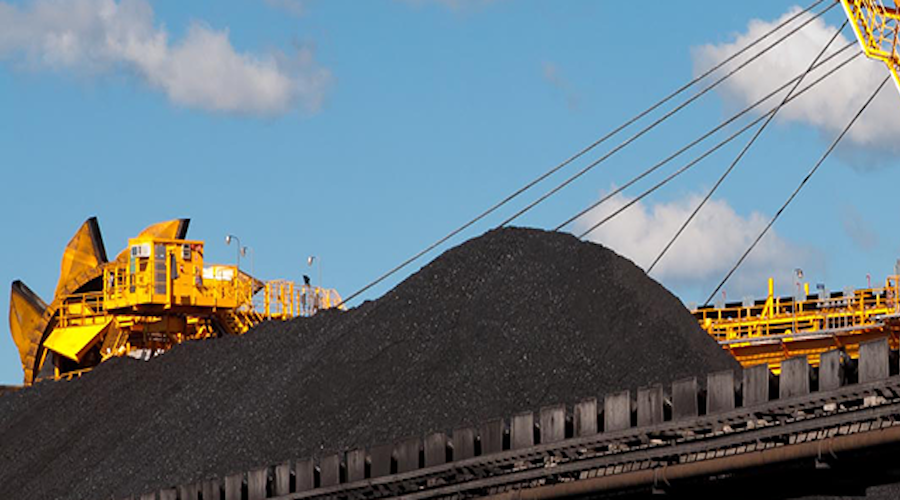Australia court blocks giant coal mine on human rights grounds

An Australian court has blocked a proposal for a huge coal mine, saying the emissions produced by the fuel would threaten human rights.
The Galilee Coal Project would add 1.58 billion tons of carbon dioxide to the atmosphere over its lifespan — more than triple Australia’s annual domestic emissions — and impact the human rights of future generations, the Queensland Land Court ruled on Friday.
“Climate change was a key issue in this hearing,” the court said in its ruling. “This Project alone is not the difference between acceptable and unacceptable climate change. But 1.58 gigatons of CO2 is a meaningful contribution to the remaining carbon budget to meet the long-term temperature goal of the Paris Agreement.”
The landmark ruling is another blow for Australia’s A$120 billion ($81 billion) coal export industry, less than a week after accusations that it falsified data about the quality and climate impact of its products. The project’s biggest stakeholder, billionaire Clive Palmer, in August had another proposed mine rejected by the government.
The case is the latest in a line of lawsuits from the US to the Philippines that seek to press governments and firms to hasten efforts to reduce greenhouse gas emissions. Germany’s highest court last year forced lawmakers to bring forward the nation’s net zero goal by five years after ruling existing law put young people’s futures at risk by leaving most emissions cuts until after 2030.
The Galilee project proposed to develop the biggest thermal coal mine in the nation, with production of 40 million tons a year. It’s the first time a Queensland coal mine has been blocked because of its climate impact, Alison Rose, a senior solicitor with the Environmental Defenders Office, which represented the plaintiffs, including indigenous groups, said by telephone.
The ruling was “very new for Australia” and would set a legal precedent for other proposed fossil fuel projects in Queensland, one of the largest coal exporting regions in the world, Rose said. A similar case blocked a mine in New South Wales in 2019, but was later overturned.
Closely held Waratah Coal, the Palmer-controlled company developing the project, didn’t immediately respond to a request for comment. The Queensland Resources Council, which represents Queensland’s coal sector, also declined to comment on the wider implications of the judgment.
Waratah can appeal the decision in Queensland’s Supreme Court.
(By James Fernyhough)
{{ commodity.name }}
{{ post.title }}
{{ post.date }}




3 Comments
Richard Jolk
Why doesn’t the court block the spraying of elements such as aluminum into the atmosphere, often referred to as geoengineering. Harvard is running a program claiming to generate clouds thereby reflecting sunlight back into outer space. At the same time, my solar energy collectors suffer from reduced sunshine. Sadly, our ionosphere is suffering (as demonstrated by increased UVB, UVC and X-Rays reaching the earths surface), possibly due to this geoengineering (spraying of “chemtrails”). “Backwardation” of the public trust sounds similar to the Dutch government preventing farmers from using nitrate based fertilizers. In balance, increased carbon dioxide in the atmosphere is good for plants, trees and vegetables which consume CO2. Use of sequestration techniques on coal plant CO2 emissions would be much more effective than removing CO2 from the air. Regardless of all this, one good volcano will take the earth’s temperatures down several degrees. I believe there is too much at risk to rely on judges and politicians to rule on matters involving the technical ramifications of atmospheric carbon reduction. I don’t plan to see industries shuttered, or substantially hindered by such regulations.
Balter
In the scheme of things it is an insignificant amount. Consider the largest human experiment to date: the COVID-19 lockdown caused a drop of 30% in human emissions at a cost of trillions of dollars: you cannot find it on the Mauna Loa atmospheric carbon dioxide graph. Not a wiggle.
Night Rider
As one famous philosopher once said, “Ban coal, and let the bastards freeze in the dark!”